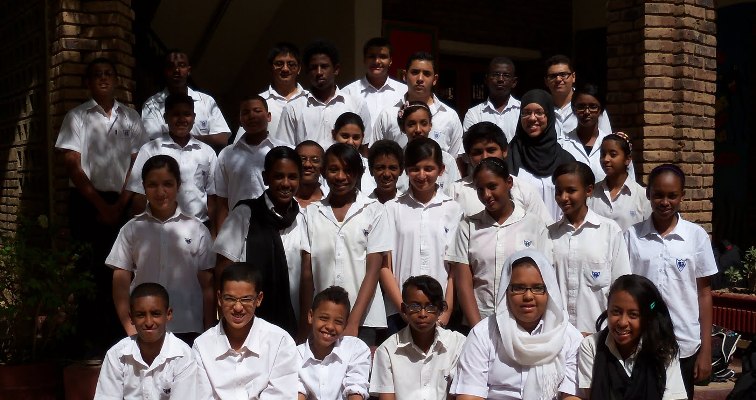Sudanese schools no longer teach lessons on Shi’ite beliefs: official

October 18, 2016 (KHARTOUM) – Sudan’s Ministry of Education on Tuesday has said that text books no longer contain lessons on Shi’ite ideology acknowledging that these lessons used to be part of the school curriculum until 2014.
On Friday, the Imam (prayer leader) of Khartoum’s Grand Mosque Kamal Rizq criticized the Sudan’s school curriculum saying it glorifies Shi’ite Islam.
He stressed that schools books propagate the Shi’ite ideology, wondering why the Iranian cultural centres were shut down while “grade tenth curriculum glorifies the Shi’ite poetry and hails it as original and a product of strong creed”.
In a press release extended to Sudan Tribune on Tuesday, the director of the National Center for Curriculum and Educational Research at the Ministry of Education Muawia Gashi, said that two pages in the 2009 edition of the literature and reading book for the eleventh grade contained a lesson on Shi’ism.
However, he underlined that those pages were omitted from the 2014 edition of the book as part of the continuous revisions carried out by the centre.
In November 2014, the Ministry of Education said it revised the text books of the tenth grade text, stressing it had cancelled some lessons propagating Shi’ite ideology from grade eleventh curriculum.
In September 2014, Sudan ordered the closure of Iranian cultural centre in the capital Khartoum, and its branches in other states. Also the Iranian cultural attaché and the staff of the centre were asked to leave the country within 72 hours.
At the time the government didn’t issue any official explanation for the abrupt decision.
However, the Sudanese President Omer al-Bashir later said they realized that government of the Islamic Republic of Iran sought actively through its diplomatic mission to spread its religious ideology.
In January 2016, Sudan severed ties with Iran after an attack on the Saudi embassy in Tehran amid a row over the execution of a Shi’ite Muslim cleric.
Since October 2014, Sudan appeared to move away from its longstanding cooperation with Iran to join a Saudi-led military campaign against Yemen’s Shi’ite Houthi militant group, which is backed by Tehran. Sudan participates with over 850 troops in the campaign.
Although the split between Sunni and Shi’ia dates back to the early days of Islam and disagreements over the successor to Prophet Mohamed, those divisions have only grown as they intertwine with regional politics, with both Iran and Saudi Arabia vying to be the Middle East’s top power.
(ST)
